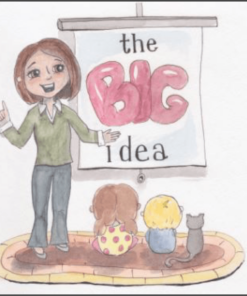Maybe I’m naïve for believing that our society should try to do the greatest amount of good for the greatest number of people at the lowest cost. Maybe I’m foolish to think that American capitalism, which is designed to let the best solutions rise to the top, should operate without corruption. And maybe I’m a deranged conspiracy theorist or I have some kind of persecution complex for believing that the corporate medical system and Big Pharma are trying to keep us sick and depressed.
But what if our system is in fact corrupt? What if our already limited options are controlled by corporate interests seeking to make the highest profit possible from a steady stream of customers?
When the pharmaceutical company Gilead Sciences began marketing a treatment for hepatitis C with a cure rate of more than 90 percent, their profits peaked at $12.5 billion in 2015. However, as the medication cured more people, fewer patients were available to take it. Just three years later, profits fell below $4 billion. Referring to this “success,” Goldman Sachs analyst Salveen Richter and colleagues offered this advice to investors and clients in a report titled “The Genome Revolution”:
“The potential to deliver ‘one shot cures’ is one of the most attractive aspects of gene therapy, genetically-engineered cell therapy and gene editing. However, such treatments offer a very different outlook with regard to recurring revenue versus chronic therapies.”
Let that sink in a bit—because it’s about to get worse. She is admitting that treating chronic disease with long-term drugs is much better for the bottom line than curing a disease outright. There is more money to be made in the long-term treatment of a disease than there is in the cure. A cure is not profitable, just as a healthy person is not a source of income for the medical establishment. It is only in a broken system that a sick person has more value than a healthy person. And if a sick population is the goose that laid the golden egg, why would these analysts, and the institutions they work for, be invested in the idea of a healthy, active, productive society?
Let us also keep in mind that these Wall Street analysts are not simply throwing words to the wind. They are providing carefully worded, powerful advice that the leaders of publicly traded companies use to their advantage.

In the report, Salveen Richter continued to rub salt into the wound: “GLID [Gilead Sciences] is a case in point, where the success of its hepatitis C franchise has gradually exhausted the available pool of treatable patients,” she writes. “In the case of infectious disease such as hepatitis C, curing existing patients also decreases the number of carriers able to transmit the virus to new patients, thus the incident pool also declines … Where an incident pool remains stable (e.g., in cancer) the potential for a cure poses less risk to the sustainability of a franchise.”
The underlying question throughout the report comes down to this: “Is curing patients a sustainable business model?”
There you have it. I may sound callous or derogatory or even sarcastic about the state of the Western medical system (humor is my main psychological defense mechanism), but these are not just my opinions. The system is stacked against you! When drug companies and hospitals are more worried about their bottom line than your overall health, they view you as a steady revenue source rather than as a person who is divinely enabled to express optimal health.

If you are healthy, you are no longer a customer. They don’t want your fawning admiration for curing your disease and helping you live your best life. They want you to be a customer for life, no matter the cost to you. They don’t care if you are happy. They can’t deposit your gratitude in the bank. They want you sick enough to need their treatments but healthy enough to pay your bills.
It is still hard to comprehend a major industry being so overtly malicious, and from there it is just a small step from wanting you to be chronically sick to actively working on keeping you sick—and all the while expecting the public to give these doctors the same respect that should be reserved for true healers.
They do this by trying to control what you think about health, whether it’s television shows, magazine articles, or online search results. They control what foods are allowed on the supermarket shelves, including how much they are subsidized by your own tax money and how they are marketed to you. All of these ideas bleed into your very subconscious. Billions of dollars are on the line.
If you are not controlling the information you take in, you are being controlled. Or, as the old saying about poker goes, “If you can’t find the sucker at the table, you’re it.” When it comes to learning more about true health and nutrition, there are countless books and websites to discover, and Selene River Press is an excellent starting point.

It is up to each one of us to think carefully and critically about what we are told, and to ask, “Is that true? If so, how does it work?” Guiding your health in the right direction takes constant awareness and a lot of work. It also takes the right team. Surround yourself with other like-minded people. Take some cooking classes based on Nourishing Traditions or the GAPS diet. Discover the lost arts of homesteading and how to be more self-sustainable. Learn how to trust your body and your intuition. And when you have a health issue other than an obvious medical emergency, look outside of the medical/insurance model for a first opinion. Personally, I only trust those who walk the talk. Are you ready to go for a stroll?
Images from iStock/repinanatoly (main), artisteer (pills in the money), AntonioGuillem (woman with pills), Stella_E (little girl).




